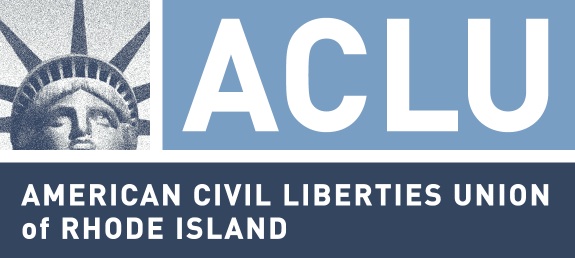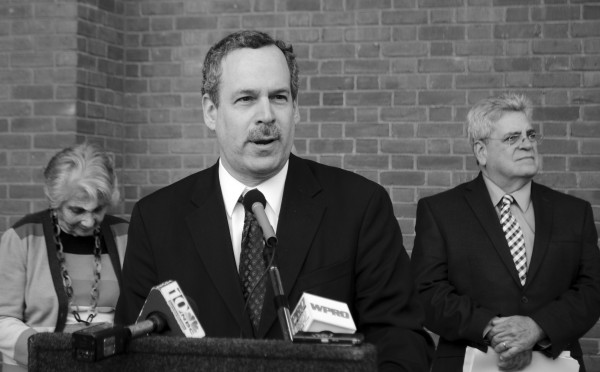 Calling the findings of the Rhode Island State Police (RISP) investigation into the Cranston Police Department likely the “tip of an iceberg,” the ACLU of Rhode Island urged the Cranston City Council to call for further investigations into police practices and possible abuses of power against individuals outside the department.
Calling the findings of the Rhode Island State Police (RISP) investigation into the Cranston Police Department likely the “tip of an iceberg,” the ACLU of Rhode Island urged the Cranston City Council to call for further investigations into police practices and possible abuses of power against individuals outside the department.
In a letter sent to city councilors Tuesday, ACLU of Rhode Island executive director Steven Brown noted that while the RISP report was thorough, it focused on a handful of discrete, and largely internal, matters. Further investigation is warranted, the letter argued, because “the public deserves to know whether the improper actions so thoroughly documented in this report were, somewhat incredibly, the only such abuses to take place, or whether there were other unknown victims of these violations of the public trust.”

According to the RISP report, former police chief Marco Palombo not only hired private investigators to conduct surveillance of two police officers, but also briefly spied on a contract civilian computer technician. That spying also entailed police improperly accessing a DMV database to obtain information about the technician. The ACLU letter notes that “if police misused their access to state databases for one political purpose, the reasonable question naturally arises whether this was the only time such databases were misused.” As for surveillance of civilians in addition to the technician, another city employee alleged she too had been the subject of police surveillance. Though the RISP report was unable to substantiate her suspicions, Brown noted that under the circumstances, her concerns “cannot be dismissed out of hand either.”
The ACLU’s letter also pointed to RISP findings that police officials “improperly sought” search warrants for phone records of two targeted employees, and that the affidavits “appeared to be misleading to the Court.” At about the same time, Brown noted, a Rhode Island judge, ruling in a completely unrelated criminal case, sharply criticized Cranston police for, among other things, submitting warrant affidavits that contained “false statements that were deliberate or made in reckless disregard for the truth.” Many of the “dubious practices” cited by the Court, states the letter, “seem eerily similar to some contained in the State Police report.”
These examples lend credence to the possibility that the documented “questionable activities used against fellow officers may have seeped into police activities against non-officers.” As a result, the ACLU letter called it “essential that further investigations be conducted to see if any of these troubling, and potentially unlawful, practices were utilized against others in instances unrelated to Ticketgate and the internal power struggles examined by the report.
The ACLU noted, as the State Police did, that the vast majority of police officers in the Cranston Police Department should not be judged by the bad actions of a few. At the same time, the RISP findings “may represent part of a broader pattern of police misconduct that cannot and should not be ignored lest it unintentionally promote a culture of indifference to basic civil rights that may continue to sprout in other contexts.”
As a result, Brown urged the City Council to “demand answers as to whether the police department, with or without the knowledge of the Mayor, may have engaged in other questionable activities against city residents since 2009, whether it was through improper surveillance, misuse of state databases, or other questionable undertakings such as those that have now been documented.”
This piece is based on a RI ACLU press release.


